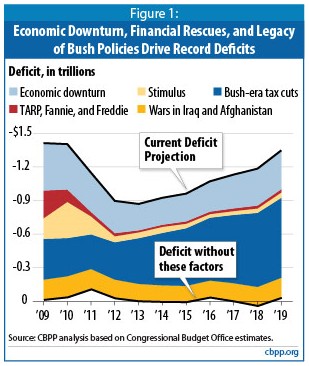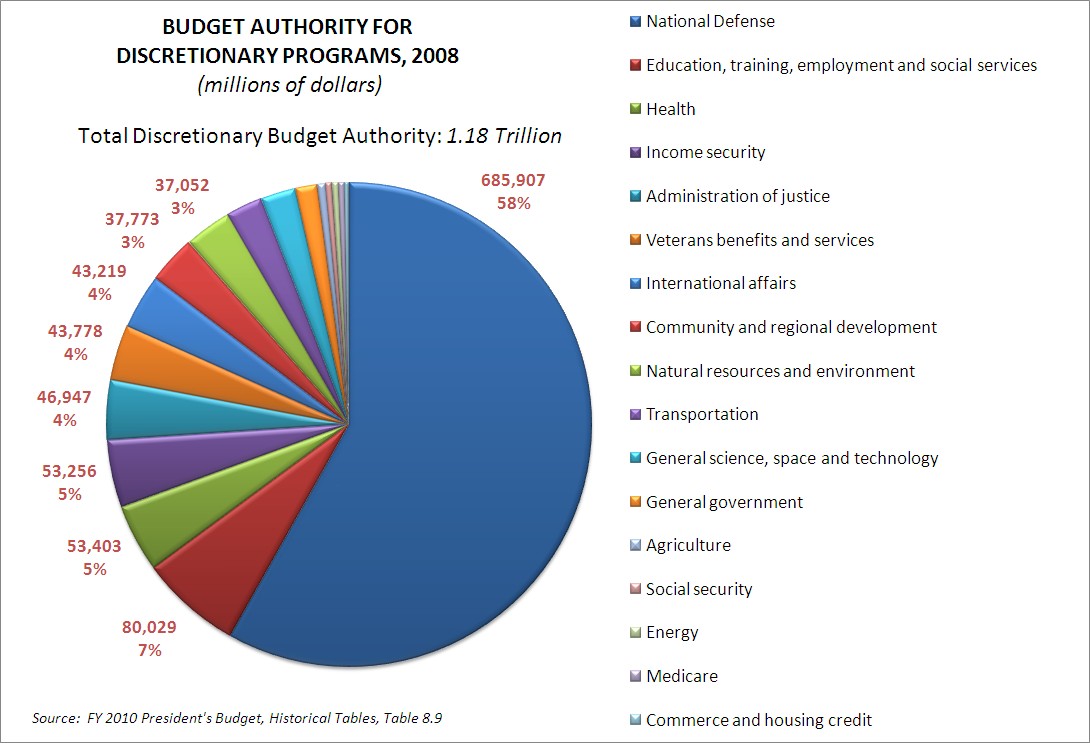Deconstructing the Deficit
by Craig Jennings, 12/17/2009
When discussing the federal budget deficit, I should be clear that reducing it right now is absolutely the wrong policy to pursue. It will likely strangle the meager recovery that's underway, and attention should primarily be focused on reducing the growing cost of health care. Having said all that, if deficit reduction must be addressed right now, it's important to first understand its composition.
 A report released yesterday by the incomparable Center on Budget and Policy Priorities addresses the historically-large federal budget deficit by breaking it down into its constituent parts. As it turns out, the Bush tax cuts, the Great Recession, and the wars in Iraq and Afghanistan are chiefly responsible for the current state of the federal balance sheet.
A report released yesterday by the incomparable Center on Budget and Policy Priorities addresses the historically-large federal budget deficit by breaking it down into its constituent parts. As it turns out, the Bush tax cuts, the Great Recession, and the wars in Iraq and Afghanistan are chiefly responsible for the current state of the federal balance sheet.
The events and policies that have pushed deficits to astronomical levels in the near term, however, were largely outside the new Administration’s control. If not for the tax cuts enacted during the Presidency of George W. Bush that Congress did not pay for, the cost of the wars in Iraq and Afghanistan that began during that period, and the effects of the worst economic slump since the Great Depression (including the cost of steps necessary to combat it), we would not be facing these huge deficits in the near term.
While President Obama inherited a bad fiscal legacy, that does not diminish his responsibility to propose policies to address our fiscal imbalance and put the weight of his office behind them. Although policymakers should not tighten fiscal policy in the near term while the economy remains fragile, they and the nation at large must come to grips with the nation’s deficit problem. But we should all recognize how we got where we are today.
And, it's the end of the year, which means Congress is finally getting around to passing the spending bills it should've passed before Oct. 1. The usual chorus of "deficit hawks" will crescendo as Congress votes on funding the federal government in the coming weeks, so it's important to remember just what exactly is being approved and where spending cuts could be enacted.
Omitting any discussion of cutting national defense spending or raising taxes is, well, just is not going to get "deficit hawks" anywhere near their target of a balanced budget. (That big blue field in the chart is the proportion of the discretionary budget that is spent on national defense.)




